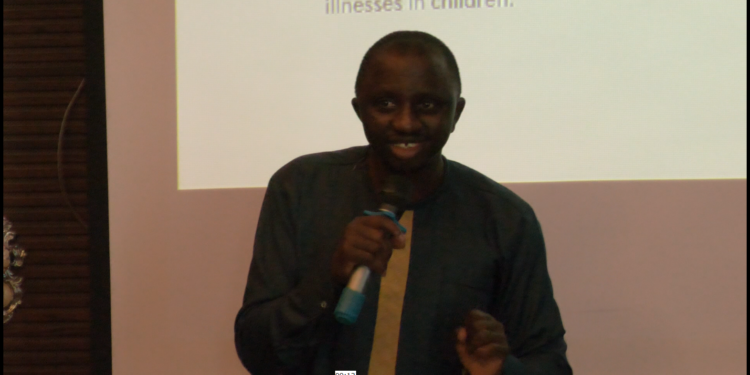By Cheryl Alafia Thomas
Sustainable Health Systems Sierra Leone, in collaboration with the Ministry of Health and other partners, has launched a study geared towards addressing the critical issue of delayed care-seeking for febrile illnesses.
The “Proactive Community Case Management for Malaria” project will evaluate if a short period of Proactive Community Case Management or ProCCM improves early care-seeking for febrile illnesses in children in hard to reach communities.
ProCCM is the approach where health workers reach out to patients early in their illness, as opposed to the standard routine approach of Integrated Community Case Management.
Dr Sulaiman Lakoh, CEO of Sustainable Health Systems Sierra Leone, is the Principal Investigator in the research. He said that despite constituting a relative smaller portion of the world population at 1.1 percent, Sierra Leone’s share of the global malaria burden of 0.1 percent points to the enormity of the problem posed by the parasitic disease.
According to the 2021 Sierra Leone Malaria Indicator Survey, the country has a malaria prevalence rate of 22 percent. Women and children bear the brunt of the effects of the disease.
Malaria accounts for about 30 percent of under-five deaths and it’s a significant contributor to the country’s maternal mortality rate.
“It implies that we have to do something that will address this problem,” Dr Lakoh said in a presentation at an inception meeting of this research project. The focus, he noted, is around access to services.
According to the infectious disease expert, one of the issues that needs urgent addressing is delay in accessing care.
This project is being implemented in partnership with the US-based non-profit global health organization, Program for Appropriate Technology in Health (PATH), with funding from the United States President Malaria Initiative (PMI).
Pujehun is one of the five highly malaria endemic districts in Sierra Leone and, according to Lakoh, it was selected to host the study partly due to this and largely due to logistical considerations, compared to the other PMI supported districts – Falaba and Kailahun.
Work on the project actually started since November last year and it is scheduled to end in September 2025.
Kim Lindblade, a representative of PATH, described the initiative as a small investment with the potential to motivate community health workers. She said it’s designed to show if early treatment within a short period can provide the same benefit as a long term research, as has been established in countries like Senegal, Madagascar and Mali through similar studies.
Deputy Chief Medical Officer, Dr. Alie Wurie said malaria is compounded with multi-factor influences, which requires more than one strategy to reduce its rate.
According to the study methodology, as explained at the inception meeting on Friday, April 19 at the Atlantic Lumley Hotel in Freetown, it is divided into three arms targeting three distinct communities.
The first arm entails increasing the frequency of visits by health workers, provision of enough medication and engagement in social behaviour change communication.
The second arm involves provision of enough drugs and delivery of quality information, without visits by health workers.
The third and final arm entails no action, just observation of the usual routine.
The researchers say they will compare the three situations on the basis of the baseline survey to be conducted.
Some 8, 100 households will be involved in communities that will be randomly selected, according to the researchers.
Among the subjects in the study will include about 1, 500 children.
The study will also include focus group discussions.






















